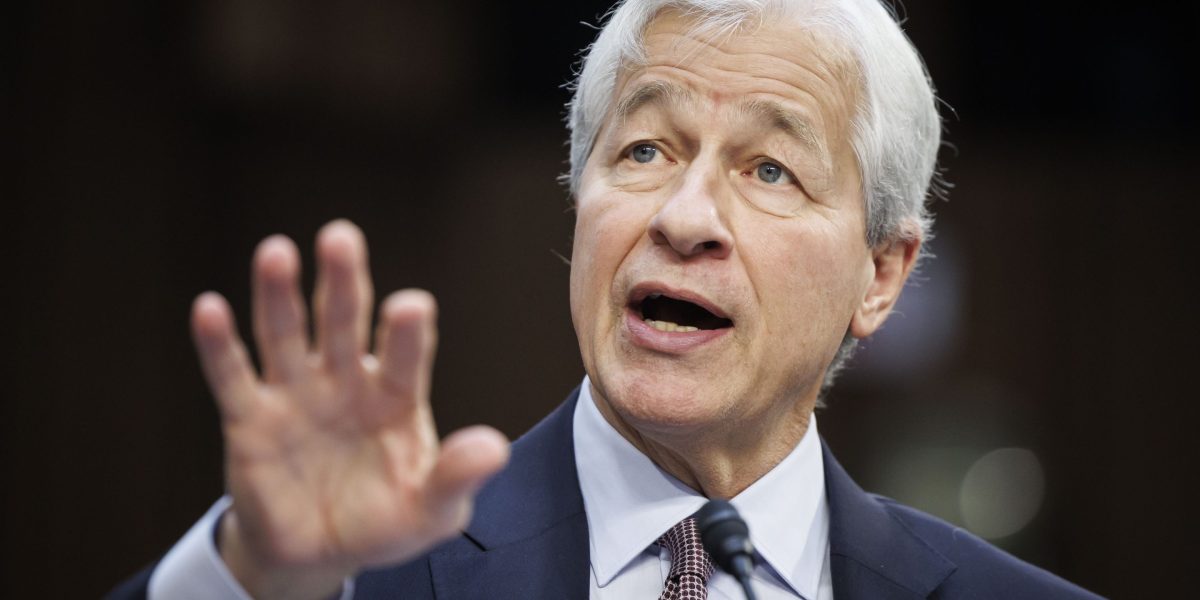
Executives at Fortune 500 companies from JPMorgan Chase to Cigna Healthcare are reassuring investors that they remain committed to diversity, equity, and inclusion principles, even as mounting attacks on DEI erode certain programs.
“It’s good for business; it’s morally right; we’re quite good at it; we’re successful,” JPMorgan Chase CEO Jamie Dimon said at a Council of Institutional Investors conference this week in Brooklyn, New York, explaining that it makes sense for the financial institution to reach out to the Black, LGBTQ, Hispanic, disabled and veteran communities.
The statements come as conservative activists target a range of corporate diversity efforts that they say discriminate against White and male workers. The calls to dismantle corporate DEI initiatives proliferated in part following the Supreme Court’s decision last year curtailing affirmative action in college admissions.
Amid the scrutiny, some businesses have downplayed or backed off of certain DEI programs. Companies including Molson Coors Beverage Co., Lowe’s Companies Inc., Ford Motor Co. and Harley-Davidson Inc. drew attention in recent weeks after walking back some diversity, equity, and inclusion commitments following pressure from conservative social media influencer Robby Starbuck.
Other businesses continue to support DEI programs, but their leaders are talking about them differently, a poll by the Association of Corporate Citizenship Professionals found. Still, there remains a vocal smattering of executives who are telling investors in no uncertain terms that an inclusive workforce is essential for their business.
Being a “red-blooded, full-throated American” doesn’t preclude an understanding that considering diversity is good for business, Dimon declared.
“I’m not interested in other people pointing fingers,” Dimon said, referring to both conservative and liberal criticism concerning corporate diversity efforts. “I’m not ‘woke’ at all.”
Language Changes
Cigna Group’s CEO David Cordani told shareholders at the company’s annual meeting in April that the healthcare company’s DEI initiatives “advance our business objectives and how we innovate and create solutions for employees or customers.” And ConocoPhillips CEO Ryan Lance told investors at the oil and gas giant’s annual meeting in May that he believes DEI is “aligned with shareholder value and improved financial performance.”
Mastercard Inc. Chief Administrative Officer Tim Murphy said at the company’s annual meeting this summer that the payment services business remains “committed to creating a global corporate environment where all people are treated equally and fairly and have equal access to opportunities and advancement.”
“That helps bring great talent in and retain it here,” Murphy said, also emphasizing the importance of “different perspectives that inform the ideas we bring to life.”
CEO leadership is crucial to a company’s DEI success, according to a June report from The Executive Leadership Council, a non-profit that champions Black executives.
But the way corporate America speaks about diversity appears to be shifting. About one-third of 126 companies surveyed for the Corporate Citizenship Professionals report published in August said they have adjusted their language describing DEI projects this year, and 17% said they had reduced external communication on diversity initiatives.
Their core efforts aren’t changing, however: 83% of the businesses said their initiatives remain the same, according to the study.
In some cases, DEI is getting a rebrand. The Society for Human Resource Management, the world’s largest HR association, caused a stir in July when the group announced that it dropped the “E” for equity from what it previously called “IE&D” to “address the current shortcomings of DE&I programs, which have led to societal backlash and increasing polarization.”
Some businesses have even removed DEI terms like “anti-racist” and “unconscious bias” from their securities filings this year, according to Bloomberg News.
Companies broadly are not backing away from their efforts, however, said Joanna Colosimo, vice president of workforce equity and compliance strategy at DCI Consulting. Businesses Colosimo advises are examining their workforce data to zero in on how they’re hiring, promoting, and firing employees to understand what policies and practices could be creating barriers.
“There are companies that are committed to this body of work, and you might not be hearing about it on a flashy webpage,” she said.
Conservative Pressure
A growing group of companies listed DEI as a “risk factor” in their securities filings earlier this year, citing potential harm to their business from taking too much or too little action on diversity. Those companies also highlighted DEI in the filings as pivotal to their financial success.
Conservative activists including former Trump advisor Stephen Miller, who leads an advocacy group called America First Legal, have filed bias litigation and asked the US Equal Employment Opportunity Commission to investigate DEI policies at companies including department store chain Macy’s Inc. Some businesses like pharmaceutical giant Pfizer Inc. have made changes to the eligibility language in their diversity programs following lawsuits.
There’s still a chance that companies that have made recent statements championing diversity could change their tune, said Scott Shepard, general counsel at the National Center for Public Policy Research, a conservative think tank that has consistently criticized corporate DEI initiatives at recent annual meetings. “They might have meant it then, but might have thought better now,” he said.
The reverse could also be true, though. Shareholder groups are considering options to push companies to reinstate diversity commitments at businesses that recently backpedaled on their initiatives.
Companies “turning on and off their commitments so quickly really makes plain that that commitment wasn’t really there in the first place,” said Portia Allen-Kyle, chief advisor at activist group Color of Change and a former senior advisor for equity, policy, and stakeholder engagement at the US Department of Transportation’s Office of Civil Rights.
While it’s important to pay attention to how companies speak about diversity, there’s also not nearly enough scrutiny on action companies take behind the scenes, for example through political spending, Allen-Kyle said.
“The worst thing that can happen is for folks to be silent and to give the impression that initiatives such as these are not worthwhile,” she said.

